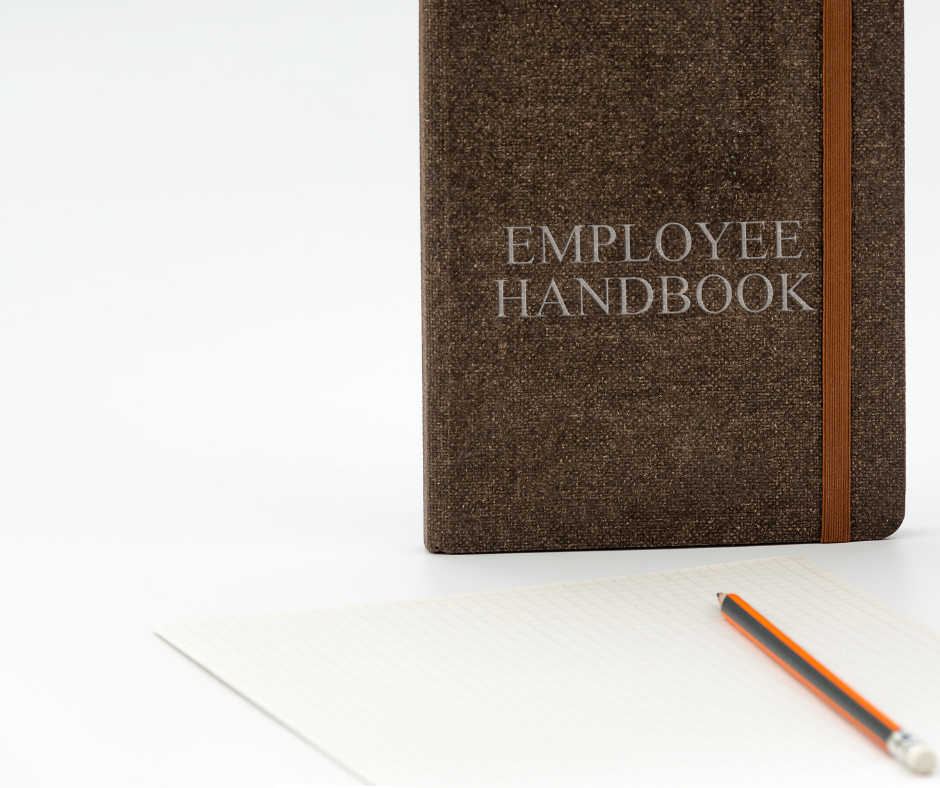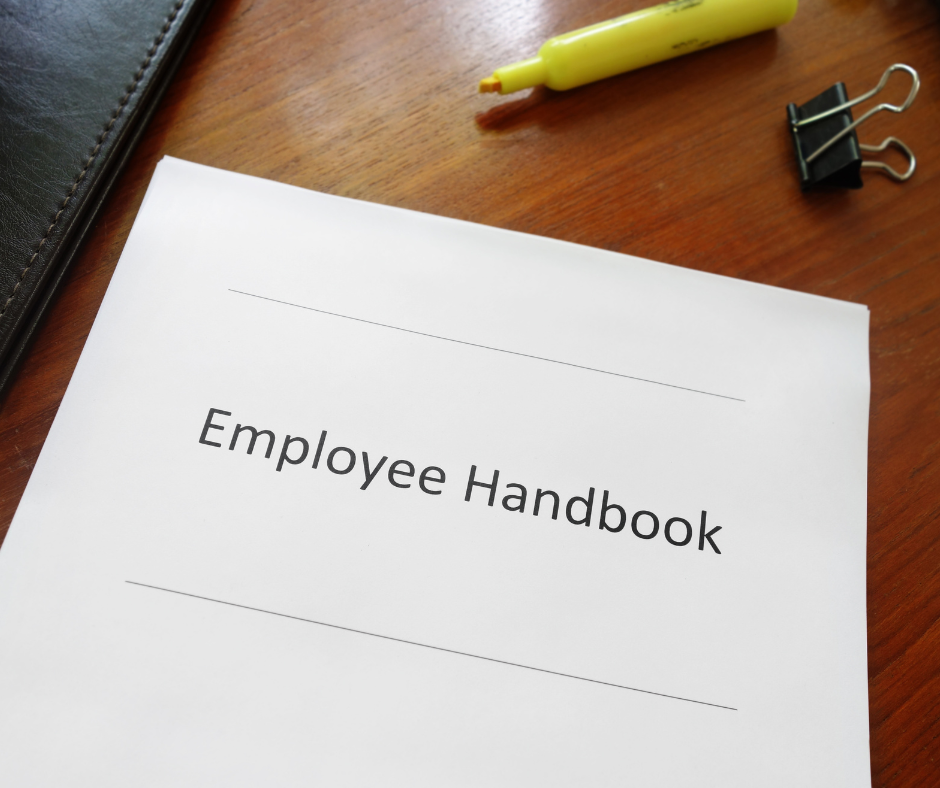
Key Takeaway:
- Employee handbooks are important for retail trade companies as they establish clear expectations and consistent policies for employees to follow. This is crucial in ensuring smooth operations and achieving business objectives. Check out this comparison of Airmason’s employee handbook software to competitors to see which one suits your needs best.
- The contents of employee handbooks should include company mission and values, code of conduct, employment policies, anti-discrimination and anti-harassment policies, health and safety policies, and pay and benefits. These policies protect the company from legal issues and provide a framework for employees to follow while working. If you’re interested in comparing different employee handbook software options, check out this article on Airmason’s software compared to industry leaders.
- Implementing employee handbooks has several benefits such as legal protection, employee satisfaction and retention, and clear communication of expectations. As such, companies should carefully consider the process of creating an effective employee handbook to ensure the best results.
Are you an employer in the retail trade sector looking to understand employee handbooks? Look no further! This article provides a comprehensive guide to crafting an effective employee handbook for your business. With a clear and informative approach, you will be able to easily create a handbook that you can use to protect both you and your employees.
Importance of Employee Handbooks for Retail Trade Companies
Employee Handbooks for Retail Trade Companies: A Vital Asset for Organizational Success
In today’s competitive business environment, retail trade companies need a systematic approach to manage and streamline their workforce. Employee Handbooks for Retail Trade Companies are an essential tool that provides vital information regarding company policies, procedures, and employee benefits. Through this, retail trade companies can ensure cohesive and streamlined communication with their employees.
These Employee Handbooks for Retail Trade Companies serve as a comprehensive guide for new hires and also as a reference point for existing employees. These handbooks contain information related to employee obligations, workplace guidelines, advancement opportunities, performance expectations, and termination procedures. By providing this information, retail trade companies can enhance employee engagement, reduce confusion, and build trust and loyalty.
In addition to their functional purpose, Employee Handbooks for Retail Trade Companies can help companies create a strong sense of corporate culture and identity. This can be achieved by incorporating brand values, mission, and vision statements into the handbook. When employees understand and align with the company’s values, it leads to improved morale, increased productivity, and better overall job satisfaction.
For Scenic and Sightseeing Transportation companies, the importance of Employee Handbooks cannot be overstated. With their unique operational challenges and customer service requirements, these companies need to ensure that their employees are well-equipped to handle any situation. An Employee Handbook that highlights safety regulations, emergency procedures, and customer service policies can help create a more efficient and reliable workforce, enhancing the customer experience, and ultimately, the company’s brand reputation.
Contents of Employee Handbooks
Creating Effective Employee Handbooks for Retail Trade Companies
Employee handbooks are essential tools for any organization as they outline important company policies, rules, procedures, and expectations of the employees. For retail trade companies, employee handbooks serve as a primary source of information regarding the retail business operations and customer service.
The handbook should include the following sections:
- Introduction and Company Mission: The handbook should introduce the company and its mission clearly. This section should include information about the company’s history, vision, and values, and how it operates. For beverage and tobacco product manufacturing companies, it’s essential to provide a clear understanding of the company’s goals.
- Employment Policies and Expectations: This section should outline the expectations from employees in terms of conduct, attendance, dress code, and performance. It should also include policies related to employee benefits, compensation, and leave policies. For apparel manufacturing companies, having a detailed employee handbook is crucial for maintaining a safe, professional, and productive work environment.
- Retail-Specific Policies: This section should address the specific retail business’ policies related to safety, security, and customer service. It should also include information about the company’s sales strategies and marketing techniques.
In addition to the standard sections mentioned above, a handbook for retail trade companies should include some unique details specific to the industry. For example, it may provide guidelines for handling customer complaints, training to handle customer service situations, and policies related to handling cash and transactions.
To make the employee handbook more effective, it is essential to ensure that the language used is easily understandable, and the policies are clear and concise. It is also important to ensure that the handbook is reviewed and updated regularly, and new employees receive a copy upon joining the organization.
Thus, creating a comprehensive and well-written employee handbook is crucial for retail trade companies to maintain compliance with labor laws and create a harmonious work environment that benefits both the employees and the organization.
Benefits of Implementing Employee Handbooks
Employee Handbooks – A Comprehensive Guide for Retail Trade Firms
Employee handbooks serve as a vital communication tool between employers and employees while setting clear expectations and minimizing misunderstandings. By implementing employee handbooks, retail trade companies can enjoy several advantages, such as:
- Improved workplace culture and higher employee engagement.
- Efficient and effective communication of company policies and procedures.
- Reduced legal risks by enforcing standardization in employment practices.
- Enhanced employee productivity, performance and efficiency.
- Increased customer satisfaction by ensuring consistent service quality.
- Established framework for conflict resolution and employee grievances.
Retail trade companies can also customize their employee handbooks according to their process and needs. For example, they can include information on benefits, employee behavior, safety procedures, and dress code.
Employee handbooks could also be a part of an employee onboarding program, which could help in streamlining and accelerating the hiring process and providing a better employee experience.
Incorporating employee handbooks for scenic and sightseeing transportation companies, an industry with unique safety protocols and customer expectations, can be of particular importance.
One incident involved a scenic transportation company in which an employee was injured in an unfortunate accident. Although the company had safety protocols in place, there was still some confusion about response procedures, creating communication gaps between the employee and supervisor. However, the company, due to clear guidelines in their employee handbook, was able to resolve the issue, providing prompt medical attention, and compensating the employee. Employee handbooks can, therefore, be essential in avoiding any similar confusion and can help organizations provide their employees with a sense of security and goodwill.
By implementing employee handbooks, retail trade companies can establish a fair, consistent, and well-informed workplace environment, enabling them to focus on their core business functions and work towards achieving their organizational objectives.
Key Considerations for Creating Effective Employee Handbooks
Employee Handbook Creation: Factors to Consider for Enhanced Effectiveness Creating an effective employee handbook is crucial for retail trade companies. Clarity and brevity are key when drafting policies and procedures. Ensure that the manual reflects the values and culture of the organization while remaining compliant with labor regulations. Include specifics such as disciplinary procedures and eligibility for benefits. Remember to keep the language simple and concise. A well-designed handbook will serve as a reference guideline for employees, highlighting expectations, roles, and responsibilities, thus facilitating smooth operations.
It is essential to consider the target audience when creating an employee manual. The handbook should be accessible to all employees, including those with disabilities or who speak other languages. Offering translations or video versions of the manual can enhance its effectiveness.
In a famous incident, a retail company faced legal action after an employee s failure to comply with its social media policy. The employee had commented on a customer s social media post, causing legal repercussions for the company. To avoid potential legal issues, carefully outlining online behavior expectations and social media policies is essential.
Five Facts About Employee Handbooks for Retail Trade Companies:
- Employee handbooks are essential for communicating company policies, procedures, and expectations to retail employees. If you’re looking for a more agile way to create and distribute your employee handbook, consider using Airmason’s employee handbook software. This can help your company stay up-to-date and adaptable to changes in the retail industry. (Source: Retail TouchPoints)
- Employee handbooks can help reduce legal risks and ensure compliance with labor laws and regulations. If you own a retail trade company, especially a clothing and clothing accessories store, then you should definitely check out this resource on employee handbooks. It can guide you through the process of creating a comprehensive, effective handbook for your employees. (Source: Indeed)
- Employee handbooks should include information on employee benefits, such as health insurance and retirement plans, as well as paid time off and sick leave policies. If you are looking specifically for employee handbooks for repair and maintenance companies, you may want to consider including policies and procedures related to equipment maintenance and safety regulations specific to the industry. (Source: The Balance Careers)
- Employee handbooks can also include guidelines on dress code, customer service expectations, and safety requirements for retail employees. If you are struggling with creating an employee handbook, consider using Airmason’s employee handbook software to improve your onboarding process. This software can help streamline the creation and distribution of your handbook, making the process faster and more efficient. (Source: Workable)
- Employee handbooks should be regularly reviewed and updated to reflect changes in company policies, labor laws, and industry standards. (Source: HR Daily Advisor)
FAQs about Employee Handbooks For Retail Trade Companies
Why is having an employee handbook essential for retail trade companies?
An employee handbook is essential for retail trade companies because it provides a well-defined set of expectations for both employees and management. It sets standards, policies, and procedures, which can help reduce employee turnover, conflicts, and lawsuits.
What policies should be included in an employee handbook for retail trade companies?
An employee handbook for retail trade companies should include policies regarding attendance, dress code, safety, breaks, harassment, discrimination, social media use, and handling of confidential information. It should also contain information about employee benefits, paid time off, and employee termination procedures
How often should an employee handbook be updated?
An employee handbook should be updated annually to ensure that the policies and procedures reflect the current state and local employment laws, as well as any changes the company may have undergone over the past year.
What should be the format of an employee handbook for retail trade companies?
The format of an employee handbook for retail trade companies should be easy to understand, visually appealing, and consistent. It should be written in clear, concise language and be presented in a format that is easy to navigate through.
What are some benefits of using an employee handbook for retail trade companies?
Some of the benefits of using an employee handbook for retail trade companies include providing a reference for both management and employees, explaining company policies and procedures, reducing the risk of employee lawsuits, and helping to create a positive work environment.
Where can retail trade companies find resources to create an effective employee handbook?
Retail trade companies can find resources to create an effective employee handbook from various sources such as employment law attorneys, HR consultants, and online HR software providers. The Department of Labor also offers free templates and guidelines for creating an employee handbook.